 NGERINGA BIODYNAMIC VINEYARD, MOUNT BARKER
NGERINGA BIODYNAMIC VINEYARD, MOUNT BARKERAdelaide Hills Turn Green In Drought
Enviro Smarts Plan Track To Future
by PHILIP WHITE
Bacchus, a large part of the community, and then possibly the entire wine drinking world, will bless the Adelaide Hills winegrowers.
The Hills vineyard environment, and its wines, are certain to improve through the new ecologically-responsible framework devised, established and broadcast via the Adelaide Hills Wine Region website by the region’s savvy Environment Committee.
For twenty years the Hills have been too easily satirised for their profusion of posh hobbyist growers who planted vineyards with little idea of viticultural science or oenology, not to mention the realities of a crowded marketplace. Vineyards of the wrong varieties were planted holus bolus in the wrong places for the wrong reasons. Machiavellian transnationals love taking this fruit at minimal rates for amorphous blends without attribution.
The side effects include inappropriate petro-chem regime management, pollution of watercourses, water abuses, bird scarers, neighbour disputes, lack of native vegetation, and so on.
But the Hills have suddenly leapt ahead of all other South Australian regions.
Last week the Adelaide Hills Wine Region Australia launched its impeccably responsible Environmental Management System. While nobody from The Courier could find the time to attend, or indeed The Advertiser, the Mount Barker Council mayor, Ann Ferguson, and its CEO Andrew Stuart were there with keen enthusiasm to see a few quiet local heroes make a most impressive presentation.
While rival regions have depended upon vague claims to green awareness, and maybe even practice, the Hills region association has nailed the theory better than the rest, released its template for measurable practice, and thus laid the gauntlet down to all its members, not to mention the other districts, like McLaren Vale, which have depended on anecdote and impressionable writers like me, to spread the word about green credentials.
The determined and seemingly tireless Larry Jacobs, of the biodynamic Hahndorf Hill Winery, has worked like a tiger, chairing the region’s Environment Committee.
“It is extremely exciting for us to realise”, he said, “that after all our effort to develop a program we saw could genuinely benefit the Hills, we’re the first region in the State, if not Australia, to have a functioning and government endorsed regional EMS available to our members”.
Put most simply, this system will grow and evolve as more practitioners climb aboard. It may not be long before the punter is paying a premium for these classified products, as the whole thing grows by competition.
With the assistance and support of Greenochre Environmental Consultant Andy Chambers, and Bryce Routley, Efficiency Project Officer at the Environmental Protection Authority, the Hills have adopted the philosophy of green guru Heinz-Werner Engel, an expert in environmental management systems and ISO 14001, the latter tattoo being a key international identifier of rigorously environmentally aware businesses which must practise what they preach.
Perhaps most critical to the Hills plan is Engel’s system called EcoMappingTM.
“An environment management system (EMS) is simply a tool for measuring and then managing a organisation’s impact on the environment, said Janet Klein, of the Ngeringa biodynamic vineyards and winery at Mount Barker. (Having well and truly completed his stint, Larry Jacobs has left his position as chair of the environment committee, and the able Janet has now taken the role.)
“Ecomapping is a simple flexible tool that helps with environmental management, leading if you like to achieving ISO 14001 status” Janet said.
Both went on to explain how Ecomapping helps a grower/maker become aware of their environmental impact and ongoing behaviour, identify issues and emergent problems, give these rank, and schedule the appropriate reactions.
Once completed, Ecomapping can serve as the basis for a wider environmental management system which promotes itself.
So, with all the confounding acronyms and psuedo-religious verdanture, what does this actually mean on the ground at the coalface further along down the track at the grassroots?
It means that by self-promoting rivalry, individual vintners in the Hills, and then entire wine regions elsewhere, will learn to clean up their act.
The new practitioner simply learns to draw maps of different aspects of their business. Larry showed us his Hahndorf Hill maps, based on aerial photography of his site. There’s a ten step method, available on the association’s website, www.adelaidehillswine.com.
These generations of maps cover, in order: urbanity and biodiversity; water, soils and storage; air - including odours, noise and dust; energy; waste; risks; materials flow; employee opinion; and the maintenance of an ecolog book.
The next step it to devise a badge or logo to identify and reward businesses and products that have committed to the system, and made progress in cleaning up their act. This will make the whole deal competitive, both within the region, and with its rivals, who are all desperately keen to make sales to an increasingly environment and health-conscious international marketplace.
So Hillsbillies become Hills Angels? I’ll say it again: “By their works ye shall know them
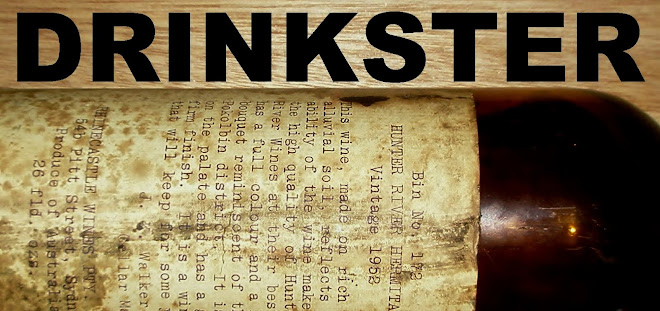
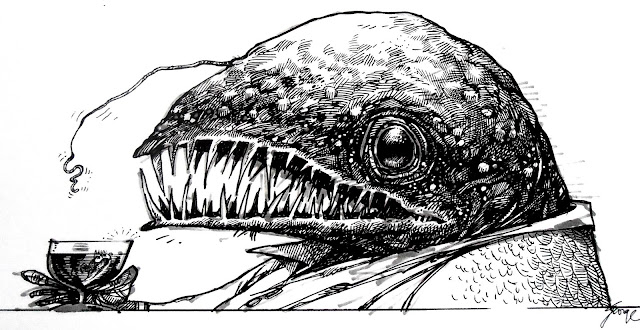
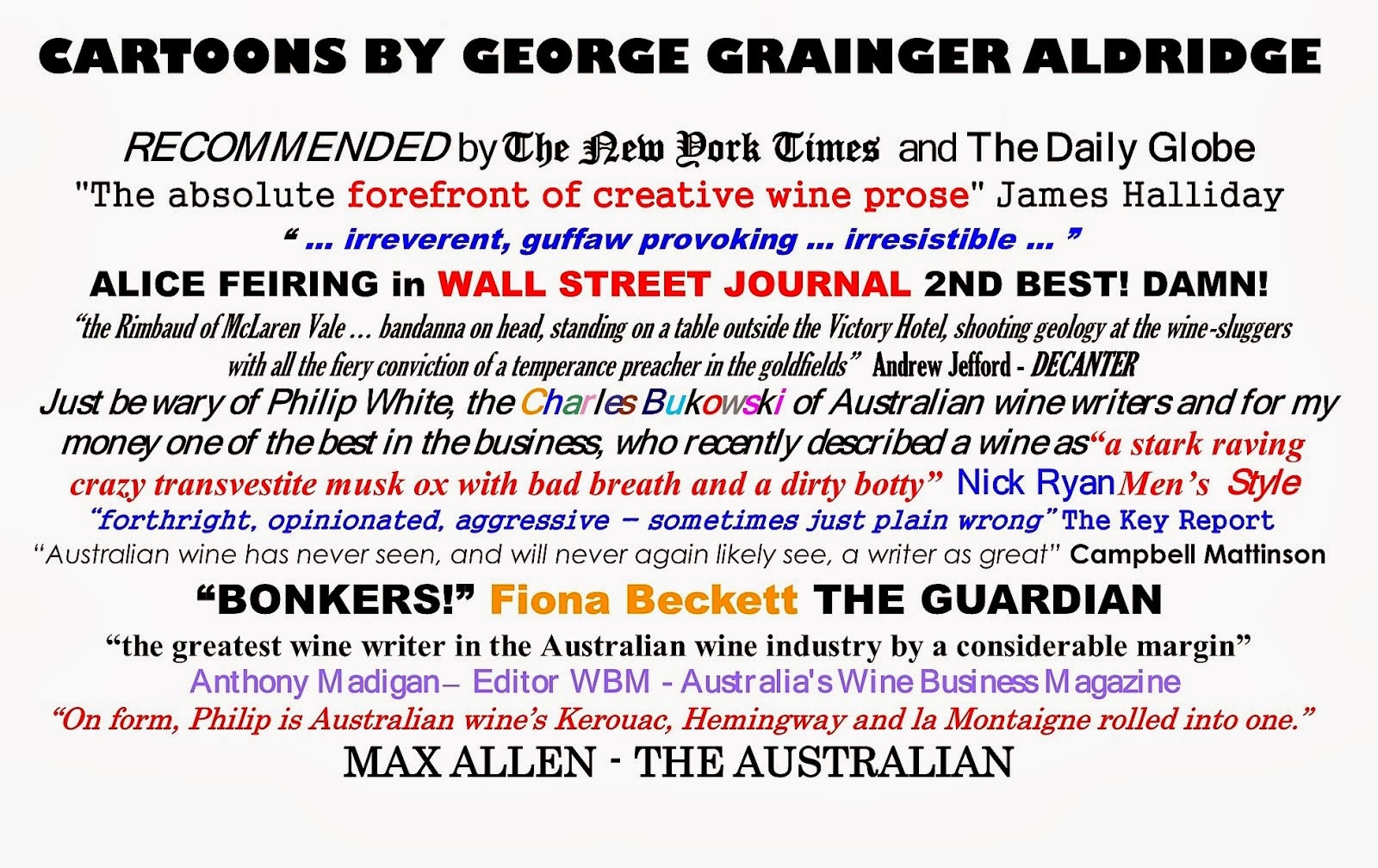

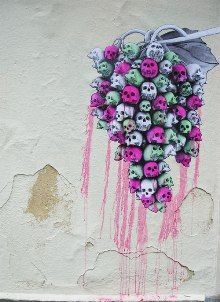






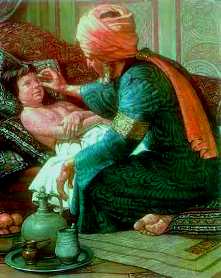

1 comment:
Great Site! Thought you might enjoy our blog.
SardineSociety@gmail.com
Post a Comment